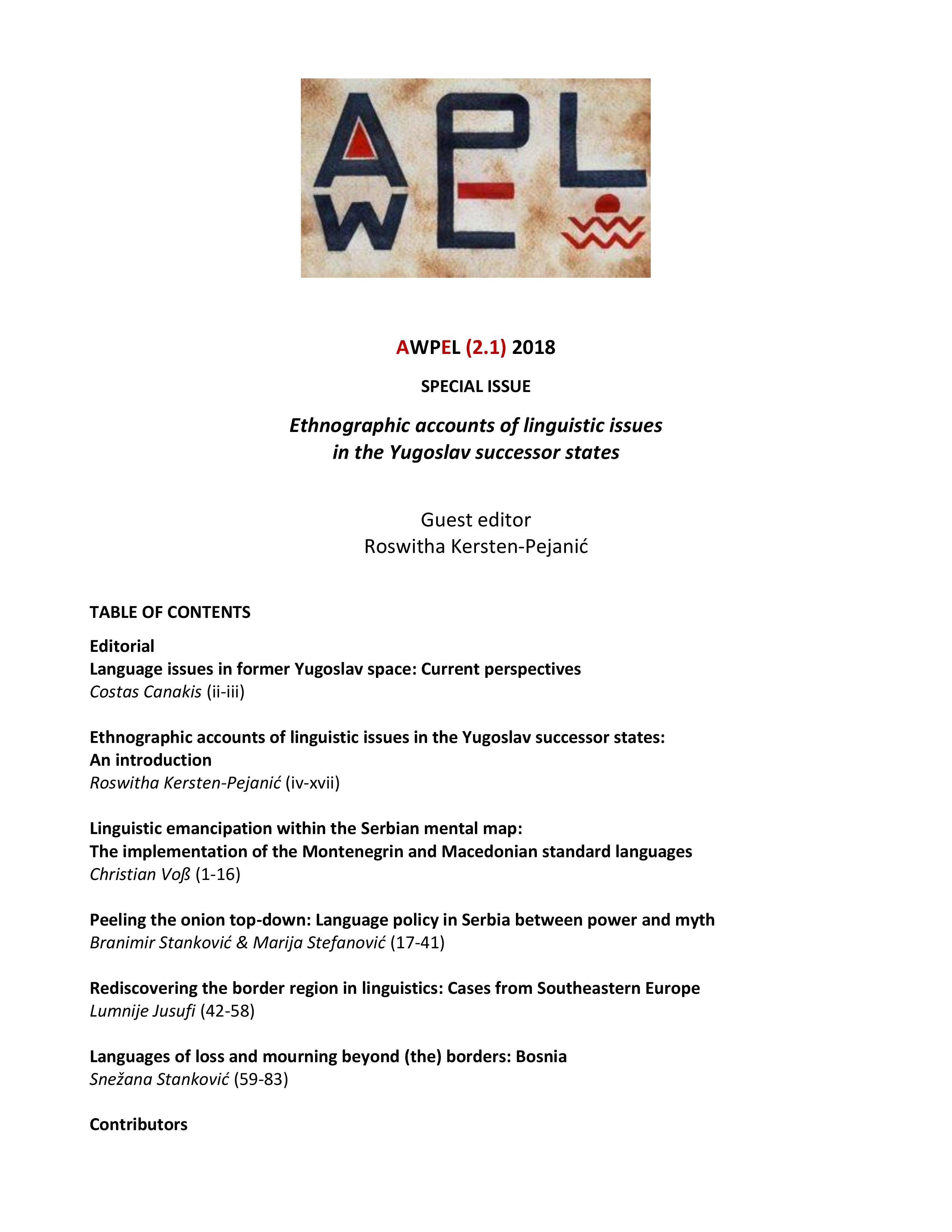Rediscovering the border region in linguistics: Cases from Southeastern Europe
Περίληψη
Border region research has recently made its way into various different disciplines and is becoming increasingly useful for sociolinguistics. Nevertheless, in the context of the languages represented in Southeastern European Studies, it is still rather rare today and heretofore non-existent in the Albanian context. This can be explained by the fact that the pivotal research object –state borders– as well as the languages discussed are often used as political and ideological tools. Often, the language situation of a given border region is not taken into account at all, for the sake of preserving the image of linguistic –and thereby national– unity. This paper will show the results of a study in the Albanian-Macedonian border region of Dibra/Debar, which has been divided for
roughly 100 years into two parts, situated East and West of the geopolitical border. The central question is to what extent the state border has exerted influence on local dialects, local standard languages, language behavior, and perception of language among the local population.
Λεπτομέρειες άρθρου
- Πώς να δημιουργήσετε Αναφορές
-
Jussufi, L. (2019). Rediscovering the border region in linguistics: Cases from Southeastern Europe. Aegean Working Papers in Ethnographic Linguistics, 2(1), 42–58. https://doi.org/10.12681/awpel.20023
- Ενότητα
- Άρθρα

Αυτή η εργασία είναι αδειοδοτημένη υπό το CC Αναφορά Δημιουργού 4.0.
Οι συγγραφείς θα πρέπει να είναι σύμφωνοι με τα παρακάτω:
Οι συγγραφείς των άρθρων που δημοσιεύονται στο περιοδικό διατηρούν τα δικαιώματα πνευματικής ιδιοκτησίας επί των άρθρων τους, δίνοντας στο περιοδικό το δικαίωμα της πρώτης δημοσίευσης. Άρθρα που δημοσιεύονται στο περιοδικό διατίθενται με άδεια Creative Commons 4.0 και σύμφωνα με την οποία μπορούν να χρησιμοποιούνται ελεύθερα, με αναφορά στο/στη συγγραφέα και στην πρώτη δημοσίευση.



